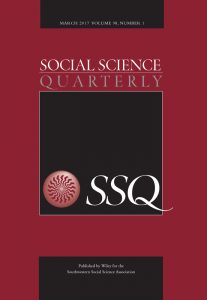Augmented Reality: Going the Way of the Dildo
by pj.rey While the term “augmented reality” uttered in a sexual context might immediately conjure the perennial problematic of the boozed, buzzed, and befuddled (commonly referred to as “beer goggles”), more nuanced analysis may prove fruitful. Fellow Sociology Lens news editor, nathan jurgenson, recently argued in “towards theorizing an augmented reality” that we need to anticipate an ascending paradigm where “digital and material realities dialectically co-construct each other.” To anticipate this new reality, I argue that we ought to turn...



1467-7660/asset/DECH_right.gif?v=1&s=a8dee74c7ae152de95ab4f33ecaa1a00526b2bd2)
1756-2589/asset/NCFR_RGB_small_file.jpg?v=1&s=0570a4c814cd63cfaec3c1e57a93f3eed5886c15)